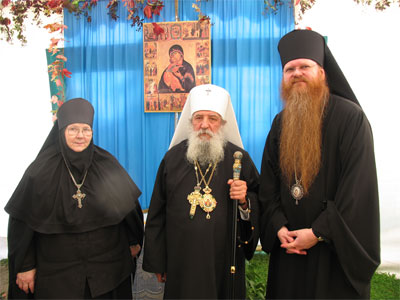2006: As I Remember It
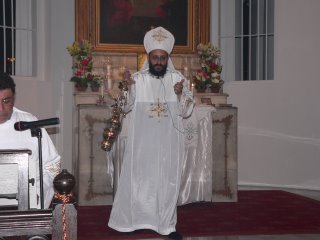 6 January: I witness a Coptic liturgy for the first time, during the Feast of the Nativity held at St Mark's Coptic Church
6 January: I witness a Coptic liturgy for the first time, during the Feast of the Nativity held at St Mark's Coptic Church25 January: Pope Benedict's first encyclical, Deus Caritas Est, is promulgated
27 January: 250th anniversary of the birth of Wolfgang Amadeus Mozart
February
11 February: US Vice President Dick Cheney accidentally shoots his friend, Harry Whittington
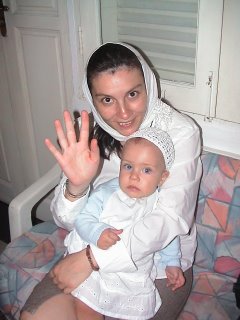 27 February: Carmen, my godmother, returns to Romania after a 3 year stay in Singapore
27 February: Carmen, my godmother, returns to Romania after a 3 year stay in SingaporeMarch
11 March: Slobodan Milošević is found dead in his cell at the Hague
22 March: ETA declares a permanent ceasefire in their campaign for Basque independence from Spain
April
 22 April: I am received into the Orthodox Church on Holy Saturday; my good friend Maria represents Carmen as godmother
22 April: I am received into the Orthodox Church on Holy Saturday; my good friend Maria represents Carmen as godmotherMay
9 May: Bishop Basil of Sourozh is retired by the Moscow Patriarchate pending an investigation into the disruption of Holy Week services
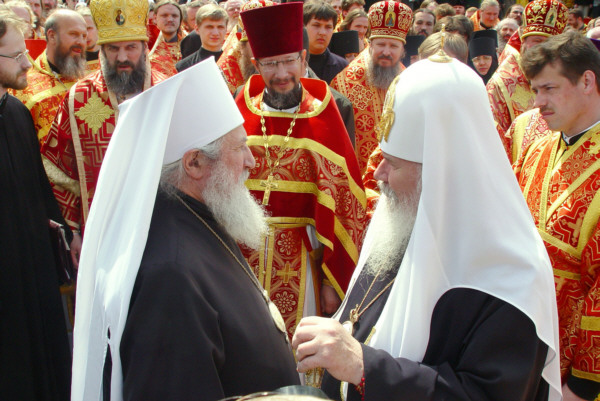 12 May: ROCOR confirms its willingness to reunite with the Russian Orthodox Church
12 May: ROCOR confirms its willingness to reunite with the Russian Orthodox Church20 May: Finnish heavy metal band Lordi win the Eurovision song contest in Athens
23 May: Edward, Norman & I watch 'The Da Vinci Code' - much laughter ensue
27 May: The first gay rights demonstration in Moscow is broken up by police
June
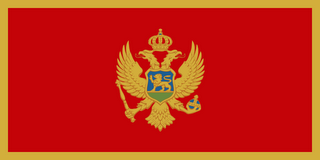 3 June: Serbia and Montenegro is dissolved as Montenegro declares independence
3 June: Serbia and Montenegro is dissolved as Montenegro declares independence8 June: Bishop Basil is received by the Ecumenical Patriarchate
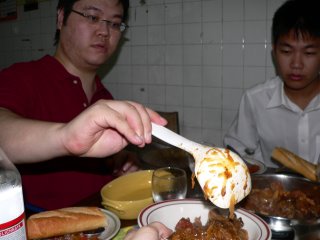 16 June: Dinner at Norman's for the first time; Edward makes Polish Hunters' Stew
16 June: Dinner at Norman's for the first time; Edward makes Polish Hunters' StewJuly
 1 July: Smoking ban extends to outdoor cafés and stalls in Singapore, angering many
1 July: Smoking ban extends to outdoor cafés and stalls in Singapore, angering many9 July: Italy wins the 2006 FIFA World Cup, beating France 5-3 on penalties
10 July: Notorious Chechen warlord Shamil Basayev is accidentally killed while escorting a truck filled with explosives
12 July: Israel invades the Lebanon, on the pretext of rescuing two kidnapped soldiers
August
 13 August: Norman, Ernest, Michael and I visit several farms in Singapore
13 August: Norman, Ernest, Michael and I visit several farms in Singapore Later that day, I finally cut my hair short after 2 years
Later that day, I finally cut my hair short after 2 years14 August: The 2006 Israel-Lebanon conflict ends, leaving 1400 Lebanese dead and 975,000 displaced
24 August: The International Astronomical Union demotes Pluto to the status of 'dwarf planet'
September
6 September: Prince Hisahito of Akishino is born, the first male child born to the Japanese Imperial family since his father 41 years ago
12 September: Pope Benedict delivers lecture; quoting Byzantine Emperor Manuel II on Islam, sparking mass protests and acts of violence against Christians worldwide
19 September: The Royal Thai Army stage a coup d'état, removing Prime Minister Thaksin Shinawatra from power
 23 September: Edward's 25th birthday is celebrated; many of us invited sample Shanghainese cuisine for the first time
23 September: Edward's 25th birthday is celebrated; many of us invited sample Shanghainese cuisine for the first timeOctober
 29 October: I sample Beijing cuisine for the first time, with Edward, Norman & Michael
29 October: I sample Beijing cuisine for the first time, with Edward, Norman & MichaelNovember
3 November: I turn 19 years of age
8 November: Film composer Basil Poledouris passes away at 61 years of age
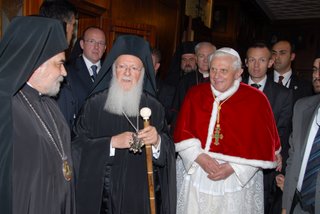 28 November: Pope Benedict arrives in Constantinople for a 3 day visit
28 November: Pope Benedict arrives in Constantinople for a 3 day visitDecember
11 December: The Holocaust Conference is opened in Tehran
13 December: The baiji, or Chinese River Dolphin, becomes extinct
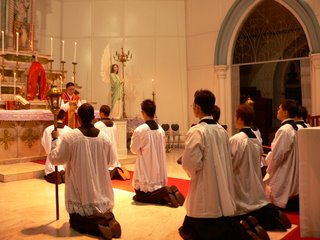 21 December: The first polyphonic mass is held in Singapore; I am hired as photographer (more on this later)
21 December: The first polyphonic mass is held in Singapore; I am hired as photographer (more on this later)30 December: Saddam Hussein in executed in Baghdad










